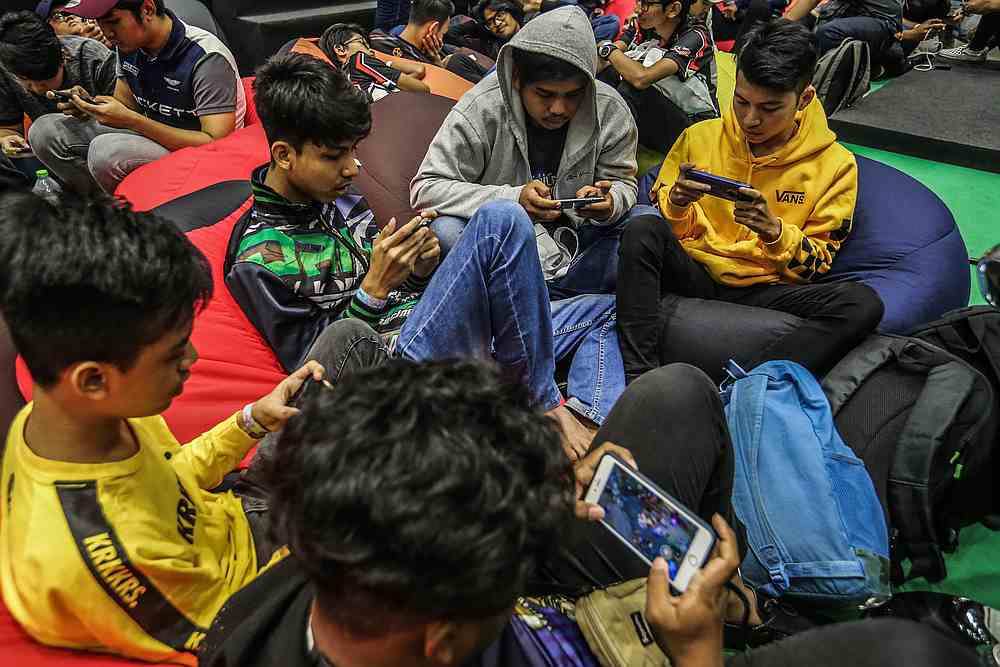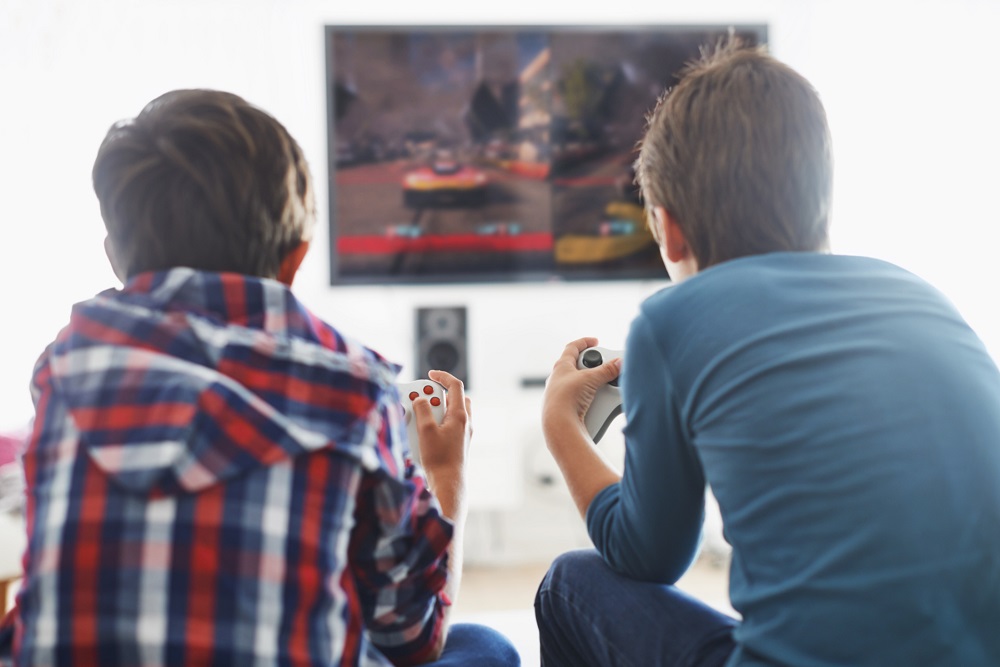KUALA LUMPUR, Oct 19 — Playing games is supposed to be a fun-filled activity, it is the reason why children and adults alike engage in it both on computers and mobile devices. But with kids stuck at home and inevitably spending more time playing video games during the pandemic, cybersecurity company Kaspersky has found that many parents are worried about the negative effects games may pose to their children.
“Parents are raising kids who are digital natives, children who are born exposed to digital devices and the internet. The lockdown measures highlighted this with the increase in the reliance on the internet and how parents now need to juggle work and parenting simultaneously,” says Kaspersky’s managing director for Asia Pacific, Stephan Neumeier.
“There are undeniable harms playing too much video games have on children but several researches have also discovered how playing games online can benefit kids. After all, everything is good but moderation and guidance is definitely necessary,” he adds.
Kaspersky shared some of its insights on common fears that parents have over video games as well as some suggestions on how parents can better manage their children’s gaming habits.
Video games are addictive and should be banned

Parents who are completely unfamiliar with video games may be tempted to completely ban their children from playing. However, Kaspersky found that banning is not the healthiest solution. This is because children may have peers that play games at school and by disallowing them from participating, they may feel like an outcast.
Instead of prohibiting children from playing games, the cybersecurity company suggests that parents speak with their children to set proper ground rules for them. This can include discussing when they are allowed to play, how long and what types of games are permissible. Beyond that, parents can rely on software level restrictions such as Kaspersky Safe Kids, a parental control app for PC, Mac and mobile devices, or enable parental controls within the internal device settings for their computer or game console.
Kaspersky is offering a three-month free trial of its Kaspersky Safe Kids solution should you require a tool to help keep your children safe as they surf the web. You can also check out Kaspersky’s official store on Lazada and Shopee for other internet security solutions.
Playing games will affect my child’s eyesight and posture

Games are a lot of fun but what if they are too fun that children end up playing them hours on end. With that in mind, many parents worry about prolonged gaming sessions and how this would negatively their child’s eyesight. This extends to mobile games too, as they fear hours spent playing would have a negative effect on a child’s posture.
So, should parents worry over these things? As it turns out these concerns are not unfounded. If a child has existing vision problems, it would be a good idea to regulate or restrict gaming sessions. As for posture that can be treated by encouraging children to exercise or pick up play some sport to balance out the time they spend in front of the screen.
Kaspersky has several suggestions to help parents out which include installing a good monitor for those that play games on a computer. Ideally, the monitor should come with a blue light filter to reduce eye strain. It should be noted that certain models of smartphones have similar anti-blue light options too.
Aside from that, Kaspersky said a good chair and table set at the right height and distance from the monitor can help promote a better sitting posture. As for mobile gamers, parents should remind their child to raise his or her phone to eye level, so they don’t need to tilt their head forward to see the screen. In doing so, they would immediately correct their posture and relieve any pressure or strain on their neck.
Children download viruses when looking for games online

Sometimes the temptation to download the latest game may lead children to download a pirated copy of a sought after title. But many of these illegal copies of popular games downloaded from unofficial sources often contain hidden viruses and malware.
Recent research by Kaspersky shows that hackers have begun using games as new vector to infect unsuspecting victims. This has only increased during the Covid-19 pandemic. The cybersecurity company found that criminals that resort to using games to spread malware, do not even use sophisticated technical methods. Instead, they rely on the gullibility and ignorance of the user to get to them.
To counter this, parents should install an antivirus software on the family computer or mobile device frequently used by their child. Not only does this prevent files containing viruses from being downloaded but it also helps removes malware. It would also be a good idea for parents to have a chat with their child on what malware is, the harm it can do and to only download games from legitimate websites or online stores.
Video games encourage children behave aggressively

Another common fear of video games is the impression that children can become aggressive after playing certain violent or graphic video games. This may lead to some parents banning or forbidding their children from playing games.
According to Kaspersky, a child’s aggressive behaviour is not directly driven by the games that they play but it is stemming from a broader range of reasons. Even when children are not shown video games at all, you may find them copying kung fu moves with their friends or shooting invisible enemies. There is a belief that playing war is prerogative of boys though this isn’t necessarily true as both boys and girls do this.
That being said, if a young child were to play a very scary game like Doom or Alien: Isolation, there is a good chance that they will be adversely affected by such games. This may result in children experiencing nightmares, suffer from sleep disturbances and irrational fears.
Parents can navigate around this hurdle by buying age appropriate games for their children. If they are not sure whether a particular game is appropriate for their child, they can always refer to the recommended age rating such as those set by the Entertainment Software Rating Board (ESRB).
To prevent children from launching games that are not suited for their age, parents can leverage on a game console’s parental controls. For example, the PS4’s parental controls allows parents to set play time restrictions, set monthly spending limits on new games as well as restrict communication with other players.
Parental guidance and honest communication
Kaspersky concludes that parents need not prohibit your children from playing video games. But to keep your child safe, the cybersecurity experts leave parents with six points that will help them better control this area of their children’s life:
• Communication
• Age rating
• Time limit
• Protection against malicious code
• Settings restricting in-app purchases
• Promote hobbies in the real world — SoyaCincau






















